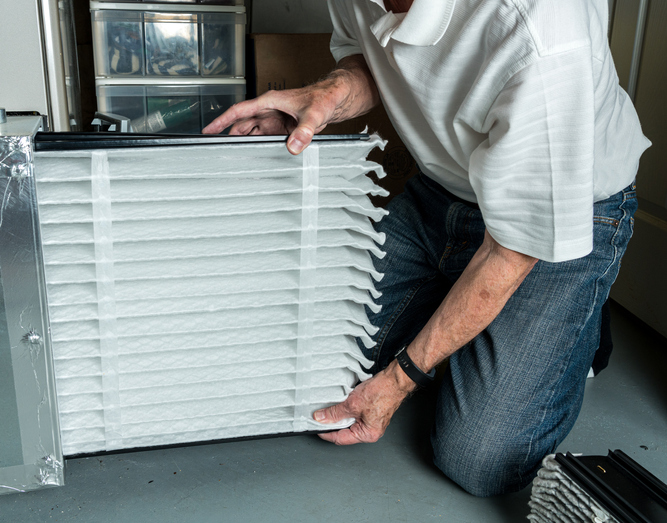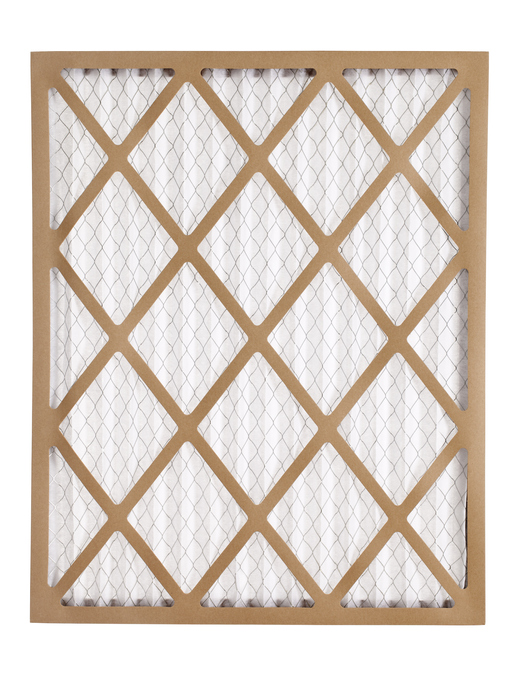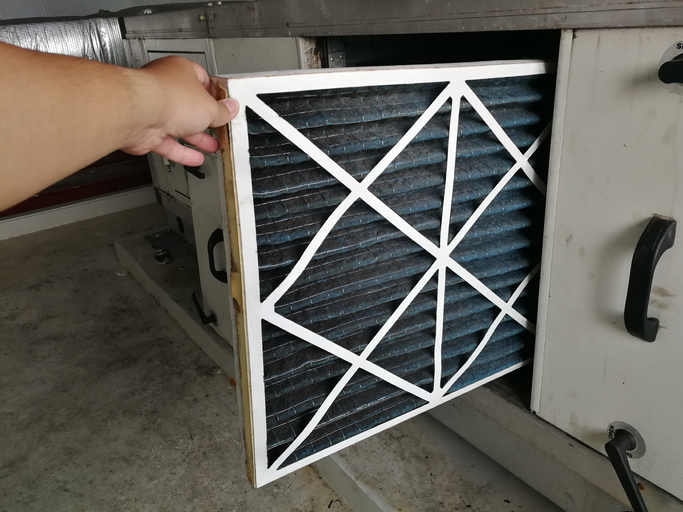A furnace filter removes dust, dirt, pollen, allergens, bacteria, and other air pollutants from the air in your home. Selecting the right filter is the first step to improving indoor air quality for you and your family.
At Bryan’s Fuel, we’re here to answer your questions about this important topic.
Factors to Consider When Buying a Furnace Filter
Here are the most important factors to consider when selecting an air filter for your home.
1. Filter Size & Thickness
Typical sizes for a furnace filter are 16” x 20”, 20” x 25”, and 16” x 25”, however there are many other sizes available. In addition, a filter’s thickness can range from 1” to 5”. To find the sizing requirements for your furnace, check your furnace manual or the panel on your furnace’s filter cabinet. The filter must fit snugly in your furnace — with no wiggle room. A perfect fit will prevent air from slipping around the edges of the filter.
2. Pleated vs Non-Pleated Filters
Pleated furnace filters tend to be more efficient and last longer than simple fibreglass, non-pleated filters. Pleated filters contain significantly more surface area which allows them to capture pollutants, contaminants, and small particles, while still allowing full air flow.
3. Disposable vs Reusable Filters
Disposable filters are lightweight, relatively inexpensive, and can be tossed out after using. There are also reusable filters that can be removed and cleaned to reduce waste. These washable filters feature a heavier aluminum frame with electrostatic fibres. You must make sure the filter is completely dry before reinstalling it to prevent mould and mildew from growing.
4. Filter Material
Disposable filters are usually made of layers of material such as fibreglass, cotton, or polyester, encased in a cardboard frame. Denser materials, such as polyester, will block more airborne particulates and offer better filtration. Electrostatic filters, that use static electricity to attract and trap small particles, offer an added layer of filtration.
5. MERV Rating
A furnace filter’s Minimum Efficiency Reporting Value (MERV) is a measurement of how well it filters out particles in the air. Filters are rated on a scale of MERV 1 to 16. The higher the value, the more particles are removed. For residential use, filters in the 6 to 12 range are most common. HEPA filters have the highest MERV ratings and are typically used in hospitals and medical facilities.
How Often Should I Replace My Furnace Filter?
As a homeowner, regular replacement of your heating system’s filter is an essential part of your home maintenance. How often you replace your air filter will depend on the type you purchased, your home’s air quality, and whether allergies or respiratory conditions are a consideration in your household. If you own pets, have heavy carpeting, live in a city, or have performed an interior home renovation project, your filter will need to be replaced more frequently. In general, 1” filters should be replaced every month. As for pleated filters, they should be replaced every 6 months in the spring and fall. Reusable filters should be washed every 2 to 3 months.
If you have questions about choosing the right filter for your furnace, we’re always happy to help. A Bryan’s Fuel home comfort specialist will be able to match the best filter for your specific heating system. Contact us today to get started.







